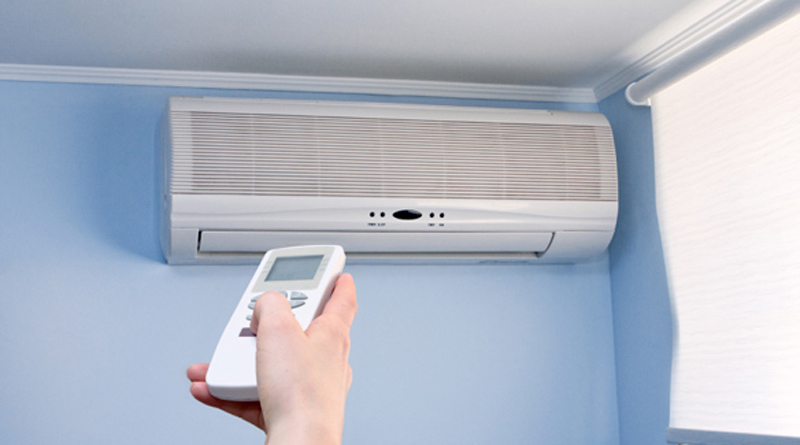The air conditioning industry is melting in the heat wave as Egyptians continue to boil in their homes, Ahmed El-Mahdi investigates
The local market is plagued by a lack of air conditioners this summer owing to the long heat wave, as The Middle East Observer observed after meeting manufacturers and merchants, who confirmed that purchases had risen by more than 100 per cent amidst the scarcity of some types because of the inability of factories to meet consumer needs.
A number of industrialists say that factories trying to meet the market needs and that the sector imports production materials worth EGP1.5 billion annually for the manufacture of 600,000 devices. What is being seen now, they say, is a crisis fabricated by merchants to raise prices.
A member of Air Conditioners and Cooling Section at the Cairo Chamber of Commerce, Zeinab al-Malt, said merchants and distributors were asking factories to provide the necessary quantity of air conditioners to meet the market demand.
The rates had increased at an unprecedented rate, and the demand would not be higher even if air conditioners were distributed free, she said. The increase in demand was at a time when factories were not providing distributors with the necessary quantities, as local production did not meet the high demand.
Customers are accustomed to heat waves that last no longer than three days, but they cannot endure such a long time as this one without air conditioning. These are a necessary and essential commodity that cannot be replaced by fans, which just churn hot air. Customers need a cool breeze to face such scorching heat.
Malt says prices are stable after hikes early in the season, namely between EGP3,000 and 4,000 per unit based on its power. An air conditioner with a horsepower of 1.5 costs between EGP3,900 and 4,600; a 2.25 horsepower version is between EGP5,200 and 6,000; and the 3.00 horsepower version is between EGP5,750 and EGP6,600.
The deputy chairman of the Chamber of Engineering Industries at the Federation of Egyptian Industries, Magd al-Manzalawi, stressed that there was no crisis in the air conditioning industry in local factories, of which are more than 10. The production movement at factories was ongoing, which made them able to meet the demands of the local market by not less than 90 per cent annually, he said.
He said reports of the inability of factories to meet the demands of merchants were unjustifiable and the only reason behind them was to create confusion on the market so merchants could raise prices and make higher profits. Factories had had their orders in since March and did not put them in this month, which made such rumours absolutely groundless, he said.
Factories produce units and store them in warehouses, which proves that there is no crisis in the production materials needed. Manzalawi says that if there were a lack of units it was for no more than a week.
However, the head of the Electric Devices Section at the Chamber of Engineering Industries, Eng. Mostafa al-Ashri, said there was a deficit in the production of air conditioners, especially the 1.5, 2.25 and 3.00 horsepower models, owing to a lack of imported production materials.
The air conditioner industry in Egypt is an assembly industry, he says. Factories import 100 per cent of their raw materials, and a lack leads to an inability to meet the demands of merchants. Factories bought their needs of production materials based on the conditions of the market last year.
What is being seen this summer, he says, is unexpected, especially with the continued heat wave which could go on for another month. This has forced people to buy air conditioners while production materials are not available at factories.
Air conditioner factories import about EGP1.5 billion-worth of production materials annually to meet the demands of the market. Factories cannot be blamed for the crisis which is caused by the Central Bank whose policies hamper production, Ashri says.
The section sent several demands to the Central Bank calling for raising the ceiling of monthly transfers so that factories can import components. US$50,000 is a tiny sum compared with what is being imported, Ashri says, and the bank should accelerate measures to meet the demands on time.
It takes 45 days to import materials and assembly takes a further 15 days, which puts factories in a real crisis. In the meantime, the heat wave is getting longer and stronger.


